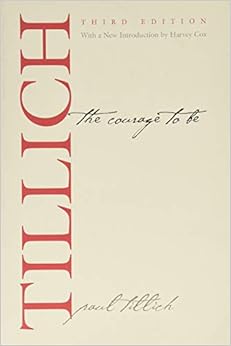Being, Individualization, and Participation
This is not the place to develop a doctrine of the basic ontological structure and its constituent elements. Something of it has been done in my Systematic Theology, Vol. i, Part I. The present discussion must refer to the assertions of those chapters without repeating their arguments. Ontological principles have a polar character according to the basic polar structure of being, that of self and world. The first polar elements are individualization and participation. Their bearing on the problem of courage is obvious, if courage is defined as the self-affirmation of being in spite of nonbeing. If we ask: what is the subject of this self-affirmation, we must answer: the individual self which participates in the world, i.e. the structural universe of being. Man’s self-affirmation has two sides which are distinguishable but not separable: one is the affirmation of the self as a self; that is of a separated, self- centered, individualized, incomparable, free, self-determining self. This is what one affirms in every act of self- affirmation. This is what one defends against nonbeing and affirms courageously by taking nonbeing upon oneself. The threatened loss of it is the essence of anxiety, and the awareness of concrete threats to it is the essence of fear.
Ontological self-affirmation precedes all differences of metaphysical, ethical, or religious definition of the self. Ontological self-affirmation is neither natural nor spiritual, neither good nor evil, neither immanent nor transcendent. These differences are possible only because of the underlying Ontological self-affirmation of the self as self. In the same way the concepts which characterize the individual self lie below the differences of valuation: separation is not estrangement, self-centeredness is not selfishness, self-determination is not sinfulness. They are structural descriptions and the condition of both love and hate, condemnation and salvation. It is time to end the bad theological usage of jumping with moral indignation on every word in which the syllable “self” appears. Even moral indignation would not exist without a centered self and Ontological self-affirmation. ‘ The subject of self-affirmation is the centered self. As centered self it is an individualized self. It can be destroyed but it cannot be divided: each of its parts has the mark of this and no other self. Nor can it be exchanged: its self- affirmation is directed to itself as this unique, unrepeatable, and irreplaceable individual. The theological assertion that every human soul has an infinite value is a consequence of the Ontological self-affirmation as an indivisible, unexchangeable self. It can be called “the courage to be as oneself.” But the self is self only because it has a world, a structured universe, to which it belongs and from which it is separated at the same time.




